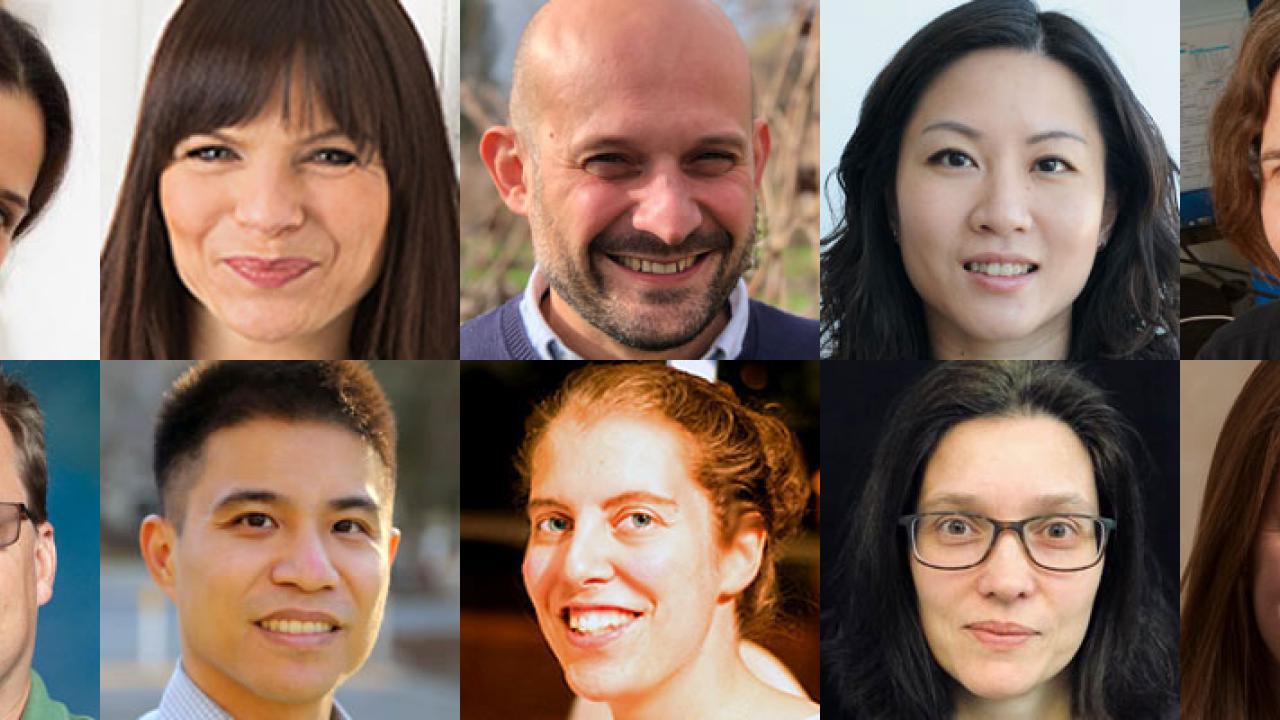Chancellor Gary S. May has named the 2019 class of Chancellor’s Fellows, the university’s annual honors program recognizing associate professors for high achievement in the quality and excellence of research and teaching.
CLASS OF 2019
- Shiva Ahmadi
- Wiebke Bleidorn
- Dario Cantu
- Joanna Chiu
- Stacey Combes
- Dennis Hartigan-O’Connor
- Garving Kevin Luli
- Beatriz Martínez-López
- Emilija Pantic
- Katie Peterson
In this 19th year of the program, May named 10 Chancellor’s Fellows: two biologists (one who studies grapevine disease, the other how insects fly), an artist and a poet, a medical microbiologist, a molecular geneticist and a veterinary epidemiologist, a psychologist and a mathematician, and a physicist looking for “dark matter.”
“We say ‘congratulations’ to these early-career faculty members,” Chancellor Gary S. May said. “They’ve clearly made a mark both at UC Davis and within the academy generally. I have no doubt their contributions will continue to grow.”
Each Chancellor’s Fellow keeps the title for five years and receives a $25,000 prize for their research or other scholarly work. Funding comes from private donations to the UC Davis Annual Fund and the UC Davis Parents Fund. See all Giving opportunities.
“This program highlights how donors to UC Davis are supporting our faculty across the disciplines,” said Shaun Keister, vice chancellor of Development and Alumni Relations. “Our Chancellor’s Fellows are propelling our university to greater excellence.”
Here are the new fellows (click anywhere in each box, to see the fellow's lab or faculty page):
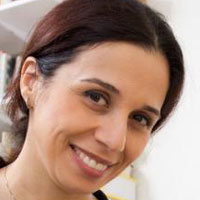
Shiva Ahmadi
Department of Art and Art History, College of Letters and Science
Combining traditional techniques and today’s technology in paintings, videos and sculptures, Ahmadi addresses contemporary, international social and political concerns. The carefully illustrated and often beautiful worlds she creates are invaded by violence and oppression in the form of faceless despots, blood and bombs. Her art has been widely praised and collected by the Asia Society in New York, the Metropolitan Museum of Art, the Asian Art Museum in San Francisco and the Contemporary Museum of Art in Los Angeles.
‘Professor Ahmadi’s work provides a compelling example of the ability of the most powerful of art to capture and create responses to the urgent issues that define our experiences of the world.’ — Elizabeth Spiller, dean, College of Letters and Science
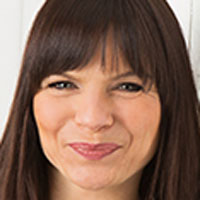
Wiebke Bleidorn
Department of Psychology, College of Letters and Science
To advance the understanding of personality, Bleidorn has become expert in an array of sophisticated research methods to identify genetic and environmental factors underlying personality development in adults. Her research includes analyzing data from long-term studies of twins, multinational surveys and intensive studies of individuals’ daily lives. Some of her work has examined how personality traits vary across nations and cultures. Colleagues describe her as a rising star who is helping to set the agenda in her field.
‘For decades, personality research was stuck on the question of whether personality changes across the lifespan. Professor Bleidorn has emerged as the leader of a new generation of personality researchers who are moving beyond this descriptive question by explaining when and why personality changes.’ — Elizabeth Spiller, dean, College of Letters and Science
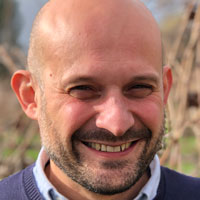
Dario Cantu
Department of Viticulture and Enology, College of Agricultural and Environmental Sciences
He earned his Ph.D. in plant biology at UC Davis in 2009, joined the faculty in 2012 and was appointed to the Louis P. Martini Endowed Chair in Viticulture and Enology in 2017 — an appointment described by his dean as “a very significant honor and particularly noteworthy given the short time he has been at UC Davis.” Cantu combines genomics, genetics and systems-level computational methods to study grapevine diseases with the long-term goal of developing genetic resistance in the vines.
‘His significant discoveries and technique development in the areas of grape and grape pathogen genomics are now enabling a new wave of science that will almost certainly lead to major advances in grape breeding and treatment of grape diseases.’ — Helene Dillard, dean, College of Agricultural and Environmental Sciences
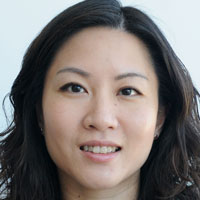
Joanna Chiu
Department of Entomology and Nematology, College of Agricultural and Environmental Sciences
This molecular geneticist studies the mechanisms that regulate animal circadian clocks. Her research has revealed new insights into the function of key proteins that control the circadian clock of the spotted-wing Drosophila, an invasive agricultural pest that infests ripening fruit. She has also identified a new mechanism that slows down or speeds up the internal clock of fruit flies — research that could help lead the way to alleviate human sleep disorders.
‘Dr. Joanna Chiu is a prolific, phenomenal and talented scholar whose research is innovative, cutting-edge and groundbreaking.’ — Helene Dillard, dean, College of Agricultural and Environmental Sciences
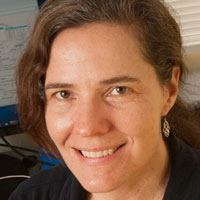
Stacey Combes
Department of Neurobiology, Physiology and Behavior; College of Biological Sciences
While others have puzzled over insect flight, Combes is the first to study how insects such as flies, bees and dragonflies fly under realistic conditions, navigating obstacles and turbulence. Whether as pollinators, pests or predators, flying insects play a major role in ecosystems, and Combes’ work has pushed forward our understanding across the field, from the biomechanics of insect wings to the foraging behavior of bumblebees.
‘Dr. Combes represents the best of what UC Davis stands for, and we couldn’t be more proud of her achievements.’ — Mark Winey, dean, College of Biological Sciences; and Mark Usrey, chair, Department of Neurobiology, Physiology and Behavior
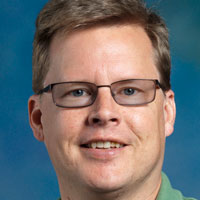
Dennis Hartigan-O’Connor
Department of Medical Microbiology and Immunology, School of Medicine
His department chair says Hartigan-O’Connor has “boldly ventured” into various facets of the immune system through gateways including vaccines, viral vectors for immune modulation, and influence of the gut microbiota, and made significant contributions in the immunology of chronic infectious diseases such as HIV, HCV (hepatitis C virus) and CMV (cytomegalovirus). A letter in support of his nomination as a Chancellor’s Fellow describes Hartigan-O’Connor as having an affinity and instinct for collaborative science — not only with other principal investigators and senior scientists, but also with more junior colleagues, postdoctoral fellows, graduate students and undergraduates.
‘His exciting research, along with his captivating presentations, has resulted in several invitations to present at both national and international meetings.’ — Satya Dandekar, professor and chair, Department of Medical Microbiology and Immunology, School of Medicine
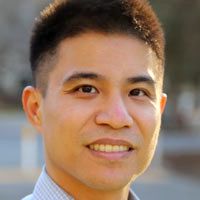
Garving Kevin Luli
Department of Mathematics, College of Letters and Science
Working in the area of analysis, Luli has distinguished himself in the difficult mathematics of fitting smooth functions to large data. His research touches on many topics, notably harmonic analysis, partial differential equations and computational algebraic geometry, and has connections to theoretical computer science as well as applications to neurosurgery (in which he is developing techniques to predict how tumors will change shape during surgery, thus enabling improved surgical accuracy). In a letter of support, a colleague said Luli’s work “demonstrates superior intellectual attainment in research.”
‘We are so pleased with the transformational caliber of your work.’ — Elizabeth Spiller, dean, College of Letters and Science, in an email congratulating Luli on his selection as a Chancellor’s Fellow
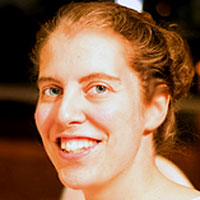
Beatriz Martínez-López
Department of Medicine and Epidemiology, School of Veterinary Medicine
A veterinary epidemiologist who directs the Center for Animal Disease Modeling and Surveillance (CADMS), Martínez-López is “an impressive problem-solver” (as described by her colleagues) whose work has helped improve surveillance, mitigation and prevention strategies for diseases affecting livestock, poultry, fish and shellfish — diseases that can have major economic consequences and public health impacts. She and her CADMS team host and continue to develop the Disease BioPortal, a global tool designed to improve health, productivity and welfare of livestock and poultry by contributing to the prevention, early detection and better control of animal diseases.
‘Dr. Martínez-López’s record in service is exceptional for career stage.’ — John Pascoe, executive associate dean, School of Veterinary Medicine
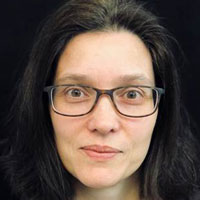
Emilija Pantic
Department of Physics, College of Letters and Science
She hunts for the most elusive particles in physics: neutrinos with almost no mass, and the mysterious “dark matter” that makes up much of the universe. She has played a key role in designing, building, running and analyzing data from a series of experiments — including CRESST, XENON and DarkSide — searching for dark matter particles. Today she is working on the Deep Underground Neutrino Experiment (DUNE) to be built a mile underground in South Dakota, and the pilot ProtoDUNE experiment now under construction at CERN in Switzerland.
‘There is no question in my opinion that Emilija has provided many original and independent contributions to the field. Her published results are very significant and helped shape the field of dark matter searches as we know it today.’ — Cristiano Galbiati, professor of physics, Princeton University
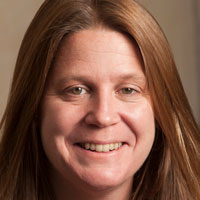
Katie Peterson
Creative Writing Program, Department of English, College of Letters and Science
A poet whose work explores interior and exterior landscapes, exposure and shelter, she has published three books — The Accounts (2013), winner of the Rilke Prize of $10,000 from the University of North Texas; Permission (2013); and This One Tree (2006) — and has a fourth collection coming out in February, A Piece of Good News. Her other achievements include renovating the graduate program in creative writing and relaunching it as a Master’s in Fine Arts degree program, and directing the Creative Writing Reading Series.
‘Student evaluations speak not only of her quality of instruction but her attention to students as individuals. Said one student: “I have never felt so much care taken with my work.” Another said: “She pushed me beyond what I believed my own capabilities to be.”’ — Elizabeth Spiller, dean, College of Letters and Science
Media Resources
Dateline Staff, 530-752-6556, dateline@ucdavis.edu
